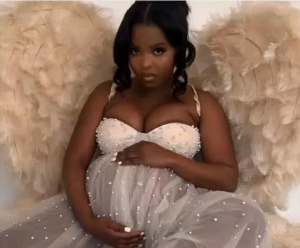We are not yet done with the Ebola virus when another kind of atrocity has again been committed on the African continent – the injection of Kenyan women with a tetanus vaccine corded with Beta–HCG to cause infertility and miscarriages. Recently the Bishops of Kenya issued a courageous statement exposing this secret sterilisation programme disguised as a tetanus vaccine.
The trouble began in March when the Catholic hierarchy became suspicious of a vaccine targeting women between 14 and 49 years that excluded boys and men. The bishops wondered why the campaign was being done clandestinely and in questionable phases.
The Bishops spoke out “Dear Kenyans, due to the direction the debate on the ongoing Tetanus Vaccine campaign in Kenya is taking, we, the Catholic Bishops, in fulfilling our prophetic role, wish to restate our position as follows: … we are shocked at the level of dishonesty and casual manner in which such a serious issue is being handled by the government…we shall not waver in calling upon all Kenyans to avoid the tetanus vaccination campaign laced with Beta-HCG, because we are convinced that it is indeed a disguised population control programme.”
Catholic Kenya reminds the world that sterilisation – not to talk of forced sterilisation - is a crime against human dignity and freedom of conscience. Not only Christian anthropology is against this practice. In traditional Africa, a woman’s fertility is considered so sacred that without it there is no woman.
If the Kenyan Bishop’s statement is true - as 27 Catholic bishops cannot sign a lie – the alleged perpetrators of this evil, that is, WHO and UNICEF and their Western sponsors, have committed an abomination hard to describe in Africa. Even in a typical western secular culture, clandestine sterilisation is a serious human rights violation, why then must they carry it out on the African continent?
In1990 Fr. Anthony Fontegh was murdered in cold blood for allegedly speaking out against similar questionable vaccines on young girls masterminded from abroad. Similar claims were made in 2004 during a Nigerian polio vaccine programme. We know too well that these blatant evils are being sponsored and launched by some Western agents, companies and states that care very little about human life in Africa.
This indicates that racism is still lurking in the world’s human family. Following the Ebola outbreak, thousands of deaths in Africa are simply handled as statistics, while the Western media reports one or two patients in America or Europe in their individual pain. This should be a cause for reflection to any African on how, in the 21st Century, some people still consider the humanity of Africans as a debatable topic.
Is it not sad that a small poor state like Cuba stands first, ethically, in providing help in tackling the Ebola plague in Africa while the “developed nations” are busy strengthening and caging up their borders to keep the poor-man’s disease from breaking their shores?
But why must the loudest democracy, freedom and human rights advocates always practice such daylight hypocrisy and double standards especially when it comes to Africa. And we must remember that the Kenyan Bishops’ conclusions on the tetanus vaccine do not depend only on religious or moral convictions, but most importantly on scientific evidence.
It is true that many African countries have much to learn from Europe and America in the area of technology, yet, many Western nations have proven that they need some lessons on moral values and the respect of human life from Africa. After the recent Vatican Catholic Synod on the Family one can ask, if the traditional African family anthropology is the only one left to save the whole world.
What lessons can we learn?
First, we can learn from the wisdom of the grassland people in English speaking Cameroon that a human being is human because of other humans. This means we cannot trample upon the humanity of others without devaluing our own humanity.
Second, the Kenyan experience has again revealed that in matters of values and the defence of human life, the Catholic Church is the hope for Africa. Third, that racism has never been sustainable and the secret becomes public sooner or later.
From where we stand, I can see the enormous value of great African fathers like Julius Nyerere, Nelson Mandela, Thomas Sankara and Patrice Lumumba and their example of fidelity to the plight of an afflicted continent. Africans have realised that neo-colonialists are using them like guinea-pigs for a free ride to rebuilding their empires.
Christianity is an untapped arsenal in the battle against the dehumanisation of helpless people that have been ignored for too long in Africa. There can only be a shift in mentality if Africans are made to understand - as the Kenyan Bishops have done - that they are humans. Only then will neo-colonialists begin to leave African humanity alone.
Opinions of Saturday, 22 November 2014
Auteur: By Fr. Gerald Nyuykongmo Jumbam














